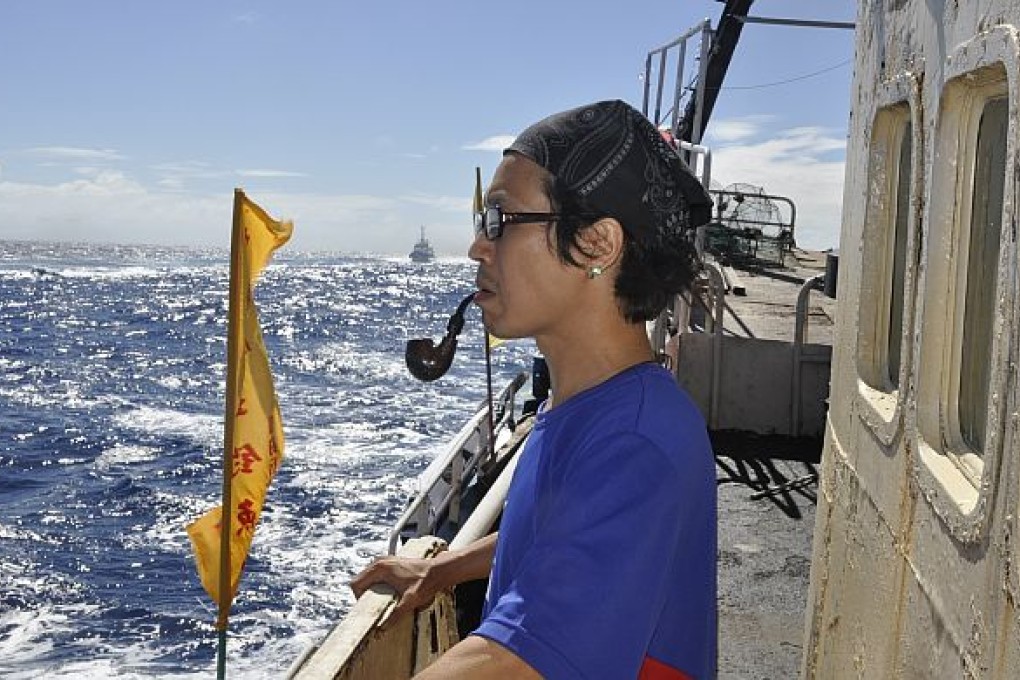Interview with Diaoyu Islands Activist Yang Kuang
A few weeks ago, a group of mostly Hong Kong activists landed on the disputed Diaoyu Islands for the first time in 16 years. Although they have been hailed as national heroes by some, the act has also damaged Sino-Japanese relations. Yang Kuang, captain of the ship that carried the activists to the islands, recounts their journey to Grace Tsoi.

HK Magazine: Why did you participate in this movement?
Yang Kuang: The first thing I see [in the island disputes] is injustice; I did not become a Diaoyu activist because of nationalism. After World War II, the United States gave the management rights of the Diaoyu Islands to Japan, which was more like an escrow. The treaties were very unfair and the terms were not agreed on by all parties. So, the Japanese do not own the islands. A lot of Chinese fishermen from the mainland and Taiwan cannot fish there because the Japanese control the seas. Personally, I don’t care how much oil reserves the Diaoyu Islands have.
HK: Anti-Japanese protests were staged in Mainland cities, and some rallies turned violent. What’s your take?
YK: Protecting Diaoyu Islands is a mass movement. However, it is not us who made those people irrational. The Central Government has suppressed mass movements for many years. Animosity has been building up because the Japanese did not apologize or offer any compensation for World War II, so such sentiments will erupt any time these incidents crop up. I don’t hate the Japanese people. I am only discontented by the behavior of their government. During our detention, the police were quite civil to us.
HK: Most Diaoyu activists, for example Bull Tsang, are hardcore pro-democracy activists. How is protecting the Diaoyu Islands compatible with the pursuit of democracy?
YK: We have a motto, “The pre-condition of a patriot is to oppose the government.” Civilians have to take up the responsibility of defending the Diaoyu Islands, and this illuminates the impotencies of the governments, including the PRC and Taiwan. These governments should be able to solve the problems. They have their own armies and diplomatic means!
HK: Before the ship set out, you told reporters that you would bring a made-in-China television set on board. Why?
YK: It’s a joke I made on the internet. It’s normal to install a TV set in a fishing ship. We didn’t have a lot of money, so it’s reasonable to buy a made-in-China TV set. Some netizens asked if we would bring any weapons onboard. Hongkongers remember Jacky Chan’s remark very well: “I will only buy a TV set manufactured in Japan because a Chinese one might explode.”
HK: You had very few food supplies for the voyage, and some say that the Diaoyu activists are ill-prepared. How do you respond to such criticisms?
YK: Having low food supplies was part of the plan. Days before we set off on the journey, the Marine Department did some checks [on the ship] and inquired as to when we would leave. It was impossible for us to stock too much food, otherwise the officers would get suspicious.
HK: You “checked in” to the islands on Facebook right after landing. Some people said that it proves that the islands are not Chinese because there is no Great Firewall [Chinese internet censorship]. What do you think about that?
YK: Facebook is a means to spread information and it can make things more interesting. We used satellite phones to go online, and the service was provided by an Indonesian company. Since our IP was also Indonesian, there was no blockage of the Internet. True, the lack of a firewall is indicative that the Diaoyu Islands are administered by the Japanese, not the Chinese. However, it doesn’t mean that the Islands are Japanese territory. On a side note, the Great Firewall is an insult to netizens. We will devise ways to bring the Great Firewall down.